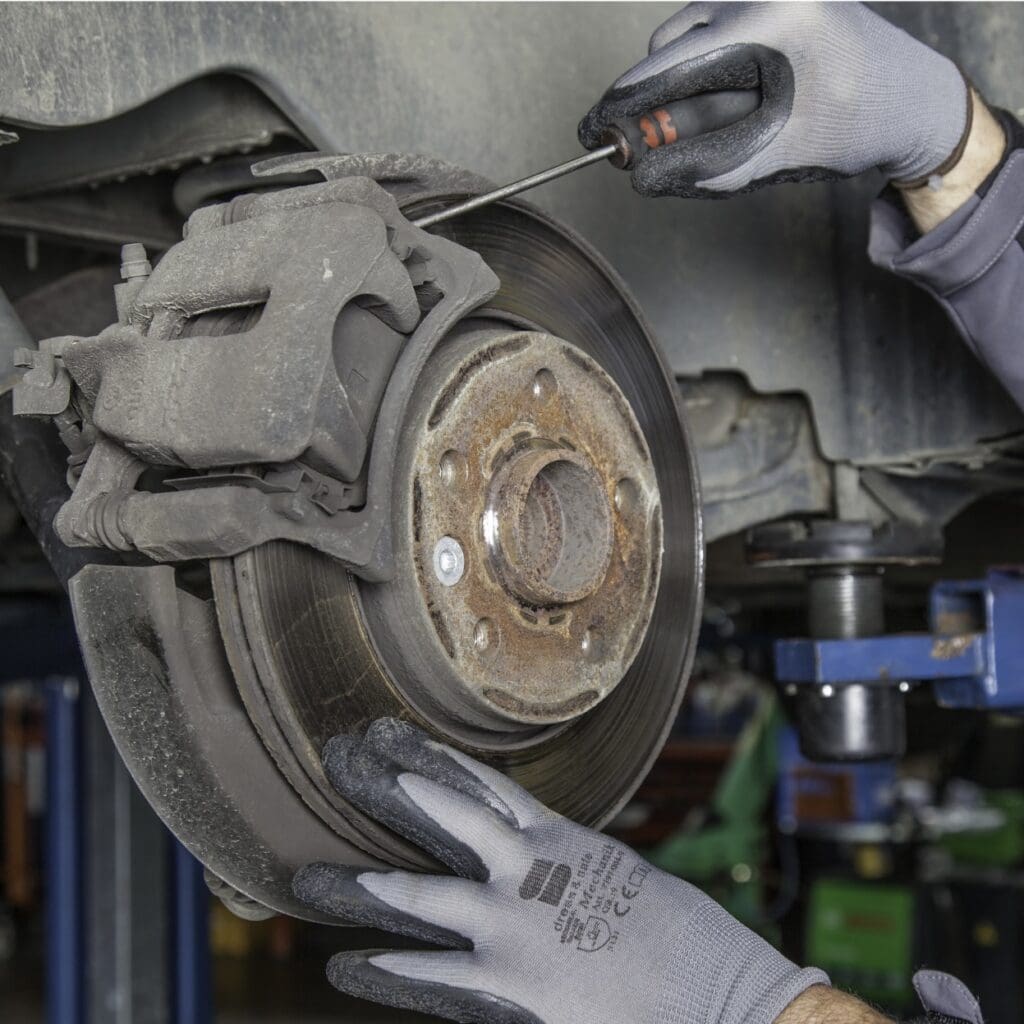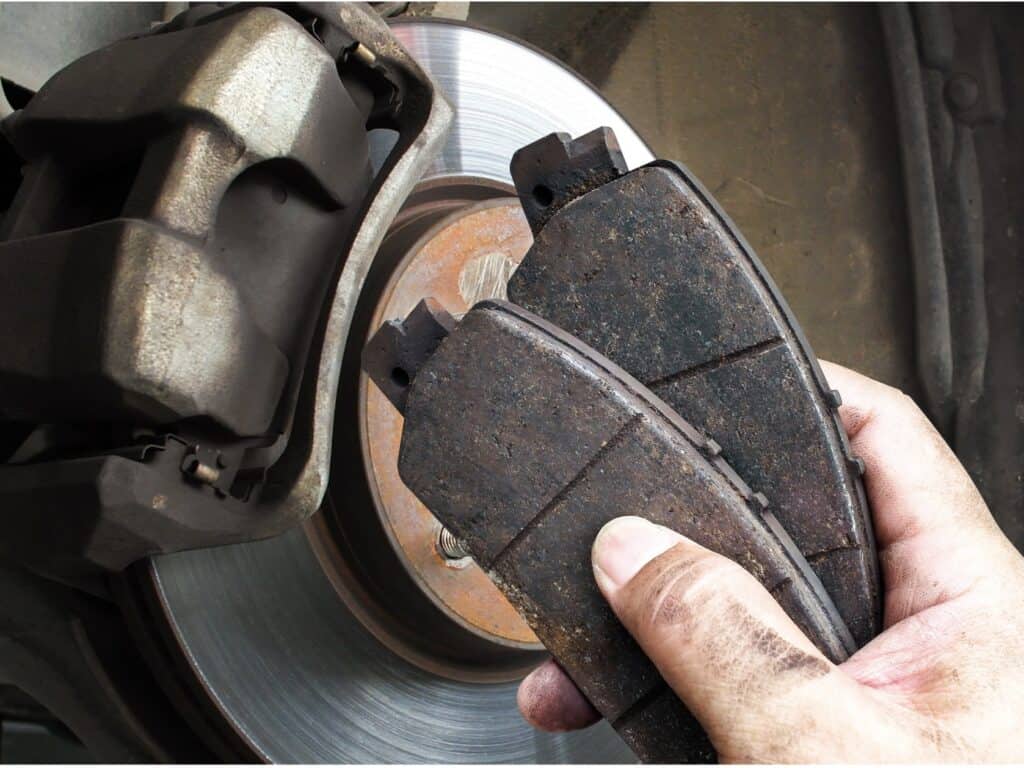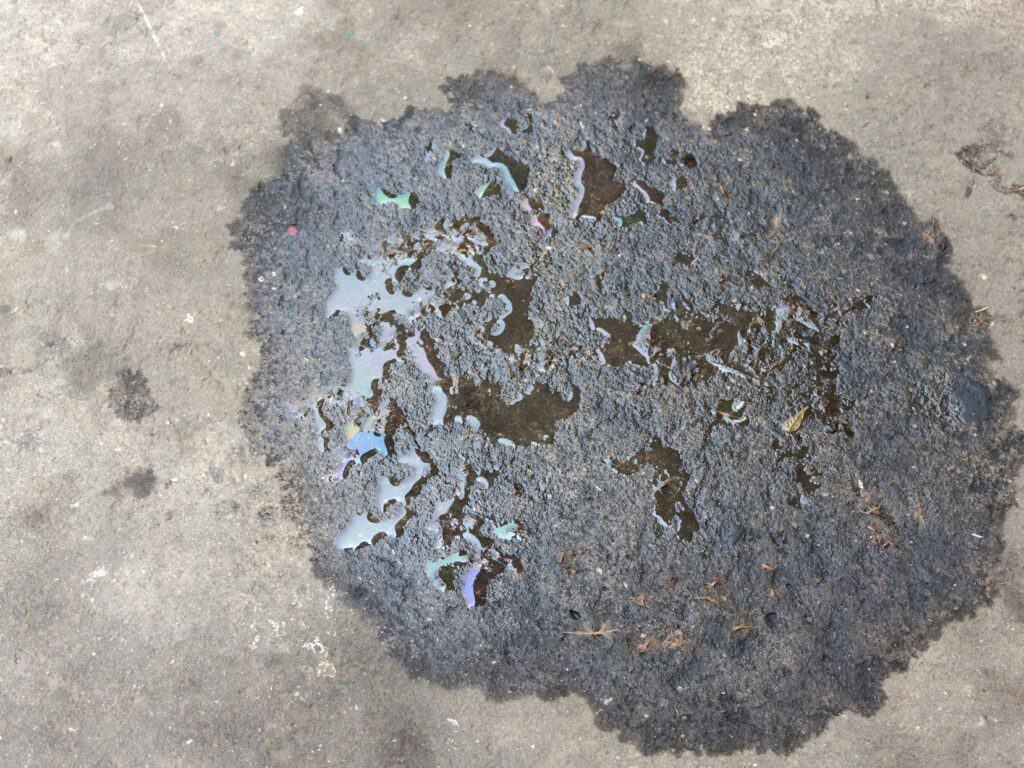How to Tell if You Need New Brakes, Part 2
 Welcome back to our series on brakes. In Part 1, we covered four signs that you might need new brakes — including brake grinding, brake pedal vibration, and issues with the parking brake.
Welcome back to our series on brakes. In Part 1, we covered four signs that you might need new brakes — including brake grinding, brake pedal vibration, and issues with the parking brake.
In the second installment we’re covering an additional five signs that you might need new brakes. That said, if one or more of these signs are present, bring your vehicle to a trusted auto repair shop so they can take a look and perform any necessary service.
Let’s jump into Part 2 of our series …
1. Sensitive or Insensitive Brakes
If your brakes bring you to an unusually quick stop, even when using the brakes regularly, rotors may have worn down unevenly, or you might just need to replace the brake fluid.
Conversely, having to press down harder than usual for your vehicle to stop — sometimes having to press the brake pedal close to the vehicle’s floor to stop — is a signal that there is a potential issue with having air in your brake fluid. This type of insensitive braking can also indicate low brake fluid, thin brake pads, or even an issue with the vehicle’s hydraulic system.
 2. Your Brake Pads Present Visible Wear Signs
2. Your Brake Pads Present Visible Wear Signs
A visible assessment of your brakes can be a clear indicator of whether or not they are in good shape. To check for wear and tear, you can take a peek in between the wheel spokes of your tire rims to check the thickness of each brake pad. Thickness less than approximately 1/4 inch means replacement is necessary. Checking each rotor for visible cracks or grooves is also advised.
3. Car Veer
When your vehicle starts veering to one side when driving, your brake lining may be experiencing uneven wear. The car can also veer while braking, too, which can be indicative of an issue. That said, car veer can also be the result of needing a wheel alignment, so it’s not necessarily your brakes. Regardless, it’s a good idea to get the issue checked out.
 4. Leaking Fluid
4. Leaking Fluid
This one’s easy to detect. A greasy puddle under your car clearly indicates a leak. Brake fluid is a clearish yellow color, and oily in texture. Leaking brake fluid can be caused by brake line issues, or from issues with a master cylinder or caliper.
5. Smoky Smell
If you’re noticing a burning smell, it may mean your brakes are overheating, or that brake fluid is leaking. A burning smell can also occur from brake dust build up. Pro tip: if you notice a smoky smell, you can hold your hand near each rim (DON’T TOUCH) to see if it’s hot and that’s a good indication of which corner is acting up.
Get in Touch
If you have any questions about brakes, or anything else auto related, feel free to contact us anytime! You can also schedule a service online by clicking on the “Request Appointment” button in the navigation above.
 2. Your Brake Pads Present Visible Wear Signs
2. Your Brake Pads Present Visible Wear Signs 4. Leaking Fluid
4. Leaking Fluid